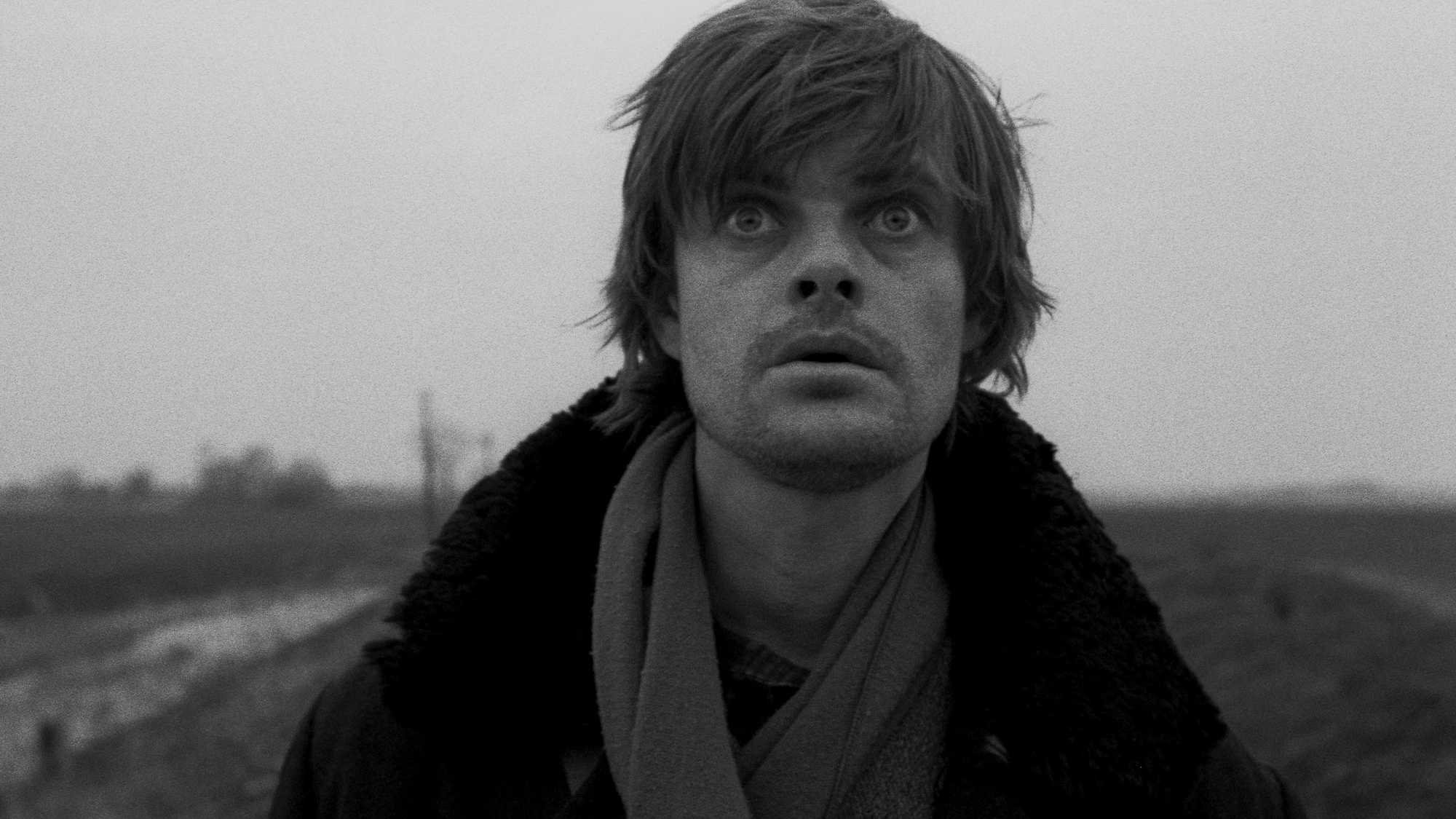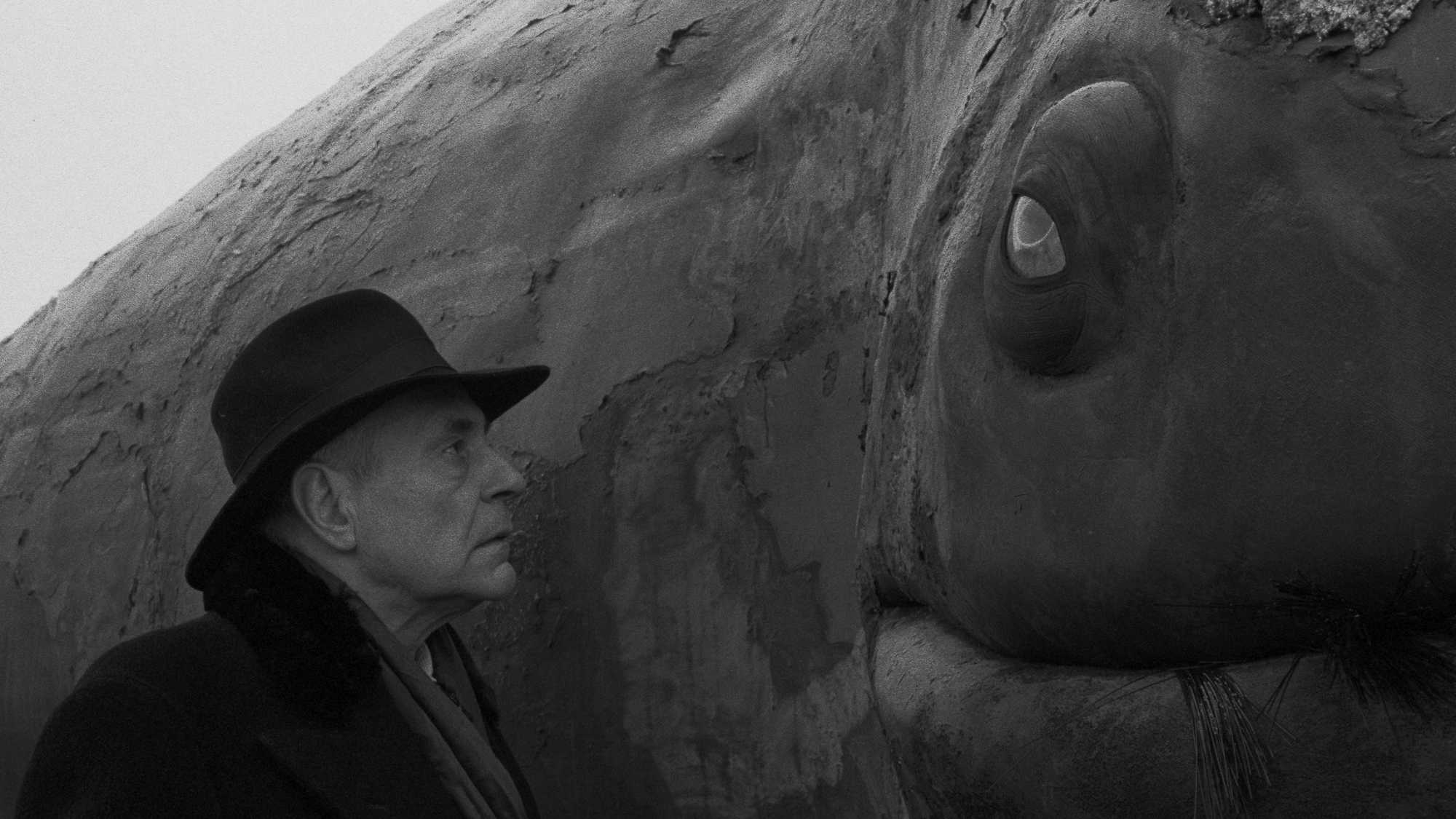Frequently singled out as one of the best films of the 21st century, Béla Tarr’s melancholy, mud-deep world of simmering mob chaos foretells of resurgent fascism in the heart of Europe.


Its eerie power has only grown in a time of rising fascism… Werckmeister Harmonies may be Tarr’s masterpiece.
Screened as part of 2025
Werckmeister Harmonies 2000
Werckmeister harmóniák
| Aug 24 | |
If there is a worthy screen prophet for today’s anxious era, when existential dread has returned to a Europe trapped in endless cycles of revolution and societal breakdown, it would have to be Hungarian auteur Béla Tarr. His mysterious, storm-pelted visions, in black-and-white long shots of sad beauty and slow time, take us inside desolated outposts that seem to be the last stop-off spots on reason’s inexorable and hellish descent.
It is winter when we enter the unnamed and poorly maintained town that is the setting of Werckmeister Harmonies, one of his best-loved masterpieces, co-directed with his longtime collaborator Ágnes Hranitzky and based on a 1989 novel by László Krasznahorkai. Tavern drunks hint at something amiss in the planetary spheres, before a ragtag circus carting a stuffed whale carcass arrives, along with a shadowy demagogue whose enigmatic presence is enough to stir up the discontented locals to riot. The violent unrest is observed by János (Lars Rudolph), a mail carrier and dreamer obsessed with musical theory, who is at a loss to fully grasp the group hysteria as it takes hold – or to plan an easy escape. — Carmen Gray